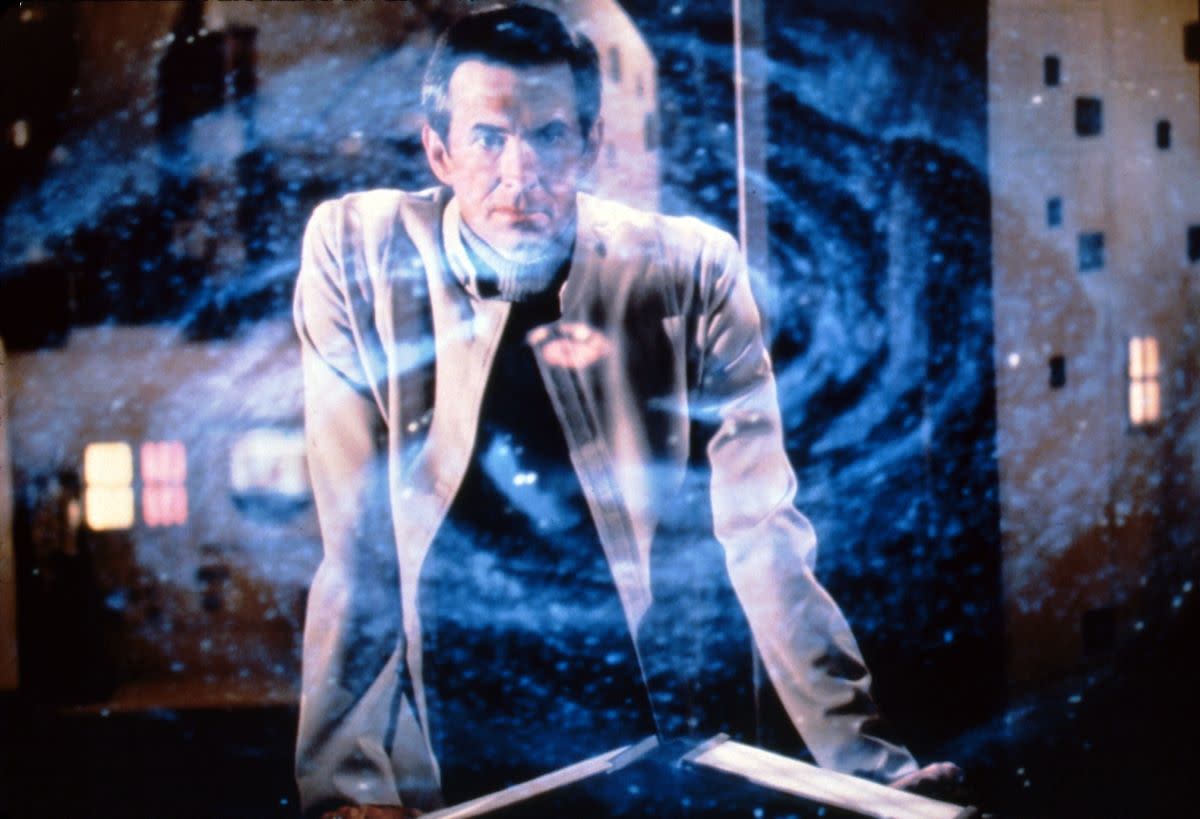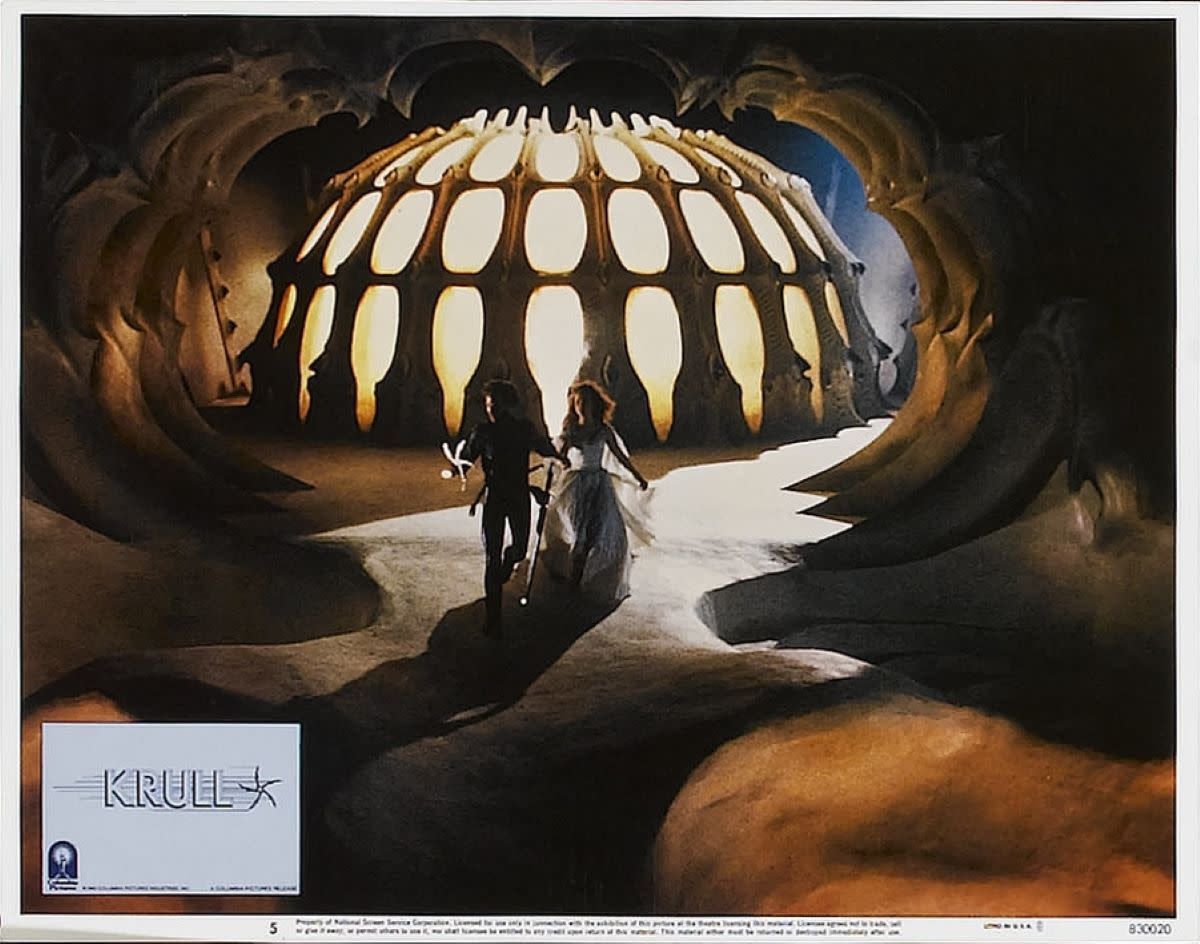Tolkien Explains the Failure of Star Wars From Beyond the Grave
It Surrounds Us, It Penetrates Us...
There's something that Professor Tolkien wrote that has
helped me come to terms with one of the great cinematic disappointments in my
life. Yes, I'm talking about Episode I and its companion features.
Star Wars was—and remains—a great unifying force for the nerds (of both sexes)
of my generation. We quote it. When up against a tough challenge, we encourage
each other to use the Force. It’s worked its way into our very language. For
example, anything + “the Hutt” = something much larger than it ought to be. We
make jokes about it. You probably know some of the indicators that you might be
a redneck Jedi (one of them is an X-wing up on blocks in your yard). Some of us
make incredibly obscure inside jokes about it. I'm reminded of a story where
many people are complaining about how cold it is in the car, and after a bit of
uncreative "dang, it's cold," someone in the back seat softly moaned,
"Ben....Ben...." Then someone else loudly passed gas. Of course, one
of the group quipped, “This may smell bad, Kid, but it’ll keep you warm.”
You Gotta Start 'Em Young

A Little Too Seriously..?
Some of us took it rather too much to heart, as the surprising number of people who wrote in “Jedi” on the religion line in a recent Australian census might indicate. But we nerds loved the Star Wars. We argued about whether Han or Luke would end up with Leia, and were suitably grossed out when we found out that Luke and Leia were so closely related (that kiss on Hoth stood out prominently in many of our memories). We wanted to be X-wing pilots or space pirates (or princesses) when we grew up. We wanted to live in a universe where a woman (Mon Mothma) can lead a rebellion, or a black man (Lando) can run a planet, or a squid looking guy (Admiral Ackbar) could command a fleet, and nobody thought it was at all remarkable.
We saw in Star Wars a world in which there was injustice, but in which good could triumph. It was a world where anybody, even a nobody from nowheresville, with enough training and dedication, could grow up to save the galaxy. It was a reflection of everything that our own world was meant to be. Star Wars surrounded us, penetrated us, bound us together.
Where it Went bad
For me, this background-level
euphoria lasted until Episode I, when Qui-Gon uttered the following line:
"I need a midichlorian count."
Star Wars Stuff
Slowly Getting Over It...Or Not
We never heard from the midicrapians again (except once, in ep3), but from that moment, there was something wrong with Star Wars. A certain je-ne-sais-quoi had been replaced with a certain... je-ne-l'aime-pas, if you will. This bothered me almost more than Anikin's miraculous virgin conception (which sorta gets blamed on the midi-chlorine-gas, kinda, at the opera on Coruscant when Palpatine tells Anakin about Darth Plagueis). The Force, which once was this unquantifyable mystery that, in theory, anyone with the dedication could learn to use, had become a thing of science and technology, something you can measure with a simple blood test. Either you had the stuff, or you hadn't, and no amount of study, dedication, or training would change it.
Why did this bother me (and many others) so much? We knew that the Force was fantasy. None of us ever seriously thought that if we just dedicated our lives to the ways of the Jedi that we'd be able to lift stuff with our minds. But we were still vaguely annoyed. Obi-Wan’s exploits in ep2 helped a little, but in my case, by the time ep3 came along, I was so disconnected from the Star Wars universe that I almost didn't even care about the utter unbelievability of Padme (who had ruled an entire friggin' planet at the age of 14, remember) deciding that since her man had turned evil, life just wasn't worth living, even if it meant her newborn twins would be left to their own devices. Sheesh.Tolkein Stuff
Fast Forward to Last November.
I'm reading an essay of Professor Tolkien's called "On Fairy Stories." He says a lot of insightful stuff in it, and if you haven't read it, I highly recommend it. You can find it in a book called The Tolkien Reader. ($7.99 on Amazon, look for it in the sidebar.) Anyway, the important point is that according to Tolkein, people like fairy stories. People, not just kids, in spite of the proliferation of books of bowdlerized “fairy tales” aimed at and marketed toward children. The reasons people like fairy stories are many and varied, but the successful stories share certain characteristics. There’s good and evil, there’s an element of the fantastic, and so forth. Tolkien really got my attention when he started talking about what it meant for a fairy story to be “true.”
Of course, fairy stories aren’t true in the literal, historical sense.
Jack did not go up the beanstalk in the same way that Sir Edmund Hillary
climbed Mt. Everest, for example. But they can resonate with the hearer; they
can ring true. And for a fairy story to be "true," for it to draw in
the reader or the listener or the moviegoer, for it to be a successful "subcreation," to use Tolkien's word, it must be internally consistent.
Eureka!
A Sense of Closure
That's why Star Wars no longer brings us the same joy. It's not because we've gotten old or outgrown it, but because when George Lucas created the midichlorians and dumped them into his universe, he irreversibly marred his heretofore brilliantly successful sub-creation. It became not a believable world that we could visit when we fired up the ol' VCR, but rather a caricature that we have to consciously suspend our disbelief to appreciate.
Yes, appreciate, since I doubt some of us will ever love it the same way ever again.





